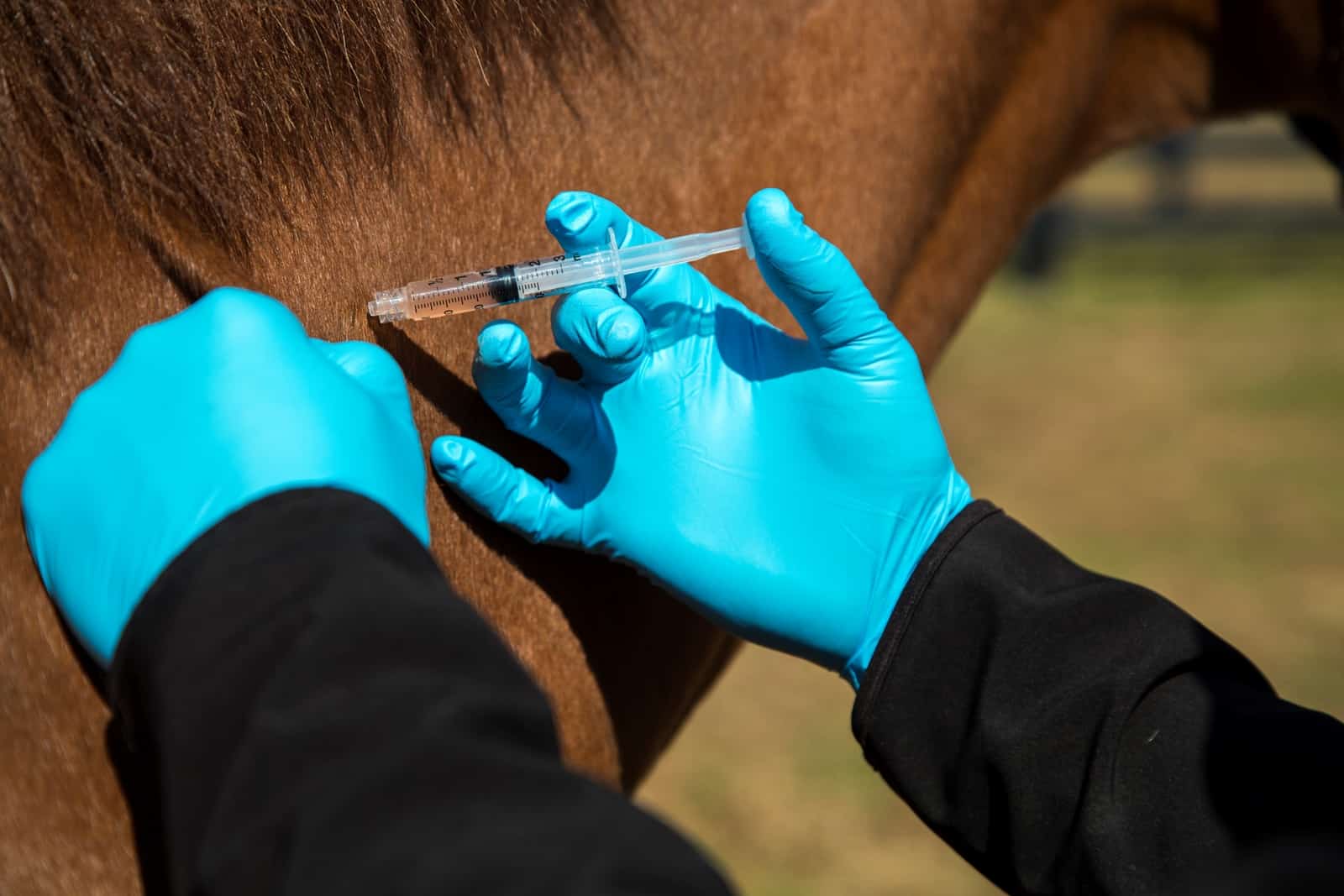Recently Imported Horses Have Stronger Reactions to Vaccination

Meagan Smith, DVM, Dipl. ACVS, assistant professor of clinical equine field science at the University of Pennsylvania, compared blood parameters between recently vaccinated imported and U.S. native horses to find out. She presented her findings at the 65th Annual American Association of Equine Practitioners Convention, held Dec. 7-11 in Denver.
Specifically, Smith looked at the acute phase proteins (APP) fibrinogen and serum amyloid A (SAA), which rise in response to inflammation and infection. The body also produces them in response to any type of tissue damage.
She recruited 30 horses for her study: 21 routinely vaccinated native horses and nine recently imported horses on a quarantine farm that hadn’t been exposed to U.S. vaccination protocols. Researchers administered three different vaccines intramuscularly to all horses, drew blood, and assessed rectal temperature, attitude, appetite, and APP levels at 0, 24, 48, 72, 96, and 168 hours after vaccination
Create a free account with TheHorse.com to view this content.
TheHorse.com is home to thousands of free articles about horse health care. In order to access some of our exclusive free content, you must be signed into TheHorse.com.
Start your free account today!
Already have an account?
and continue reading.

Written by:
Alexandra Beckstett
Related Articles
Stay on top of the most recent Horse Health news with















